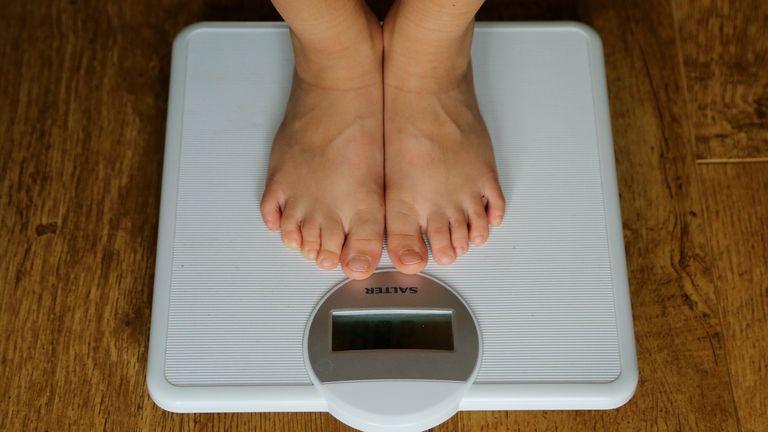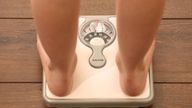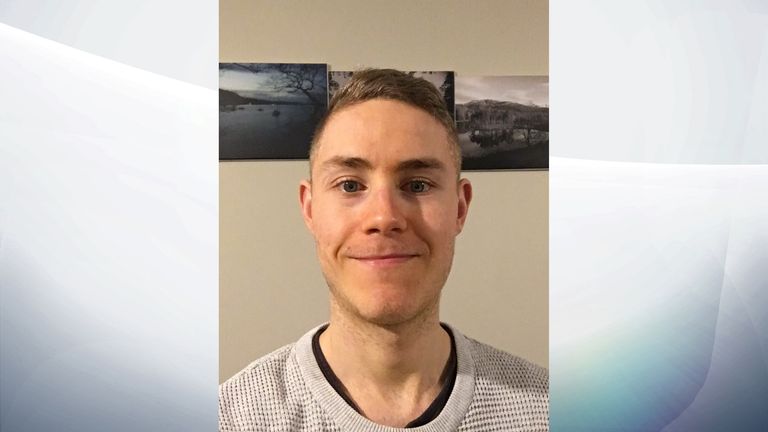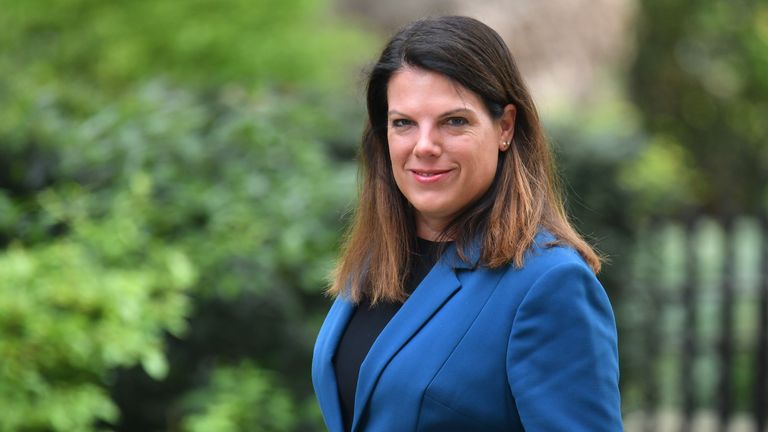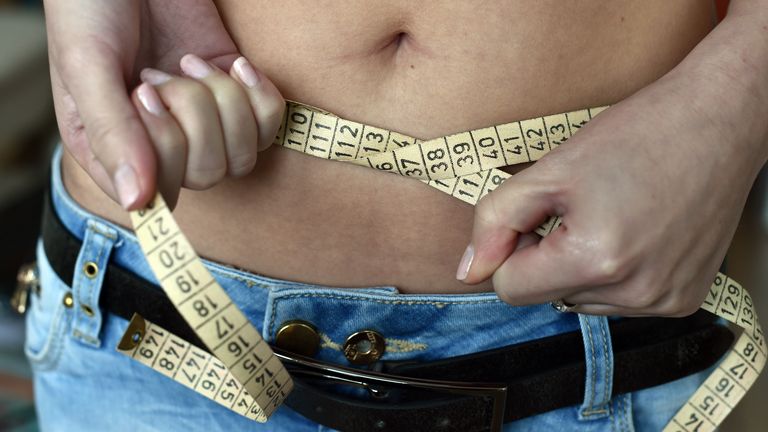Use of BMI contributes to eating disorders and disrupts mental health, report finds
A report from the Women and Equalities Committee warns lockdown had a "devastating" effect on people at high risk of disorders.
Friday 9 April 2021 09:01, UK
The government's approach towards tackling eating disorders and negative body image issues has been branded "dangerous" by MPs.
A new report calls on the government to review the use of Body Mass Index (BMI), the current obesity strategy and edited images in advertising.
The report, by the Women and Equalities Committee, also identified that lockdown had a "devastating" effect on those at a high risk of developing disorders or body image anxieties.
The committee identified that BMI contributes towards eating disorders and poor mental wellbeing and has called for a "health at every size" approach to be adopted.
"The use of BMI inspires weight stigma, contributes to eating disorders, and disrupts people's body image and mental health," the report said.
Adam Fare, who developed an eating disorder at the age of 11, has spoken of his experience of the healthcare system.
Despite seeking help, he was told that he had a healthy BMI and said he did not receive the support he needed.
He told Sky News: "When I was 18, I became critically unwell when I was at uni, my organs started failing due to my illness and I ended up hospitalised."
He added: "I was put under the crisis team then but what I got from them is 'we've never had a man in our system before so we don't really know what to do with you'.
"After six months of not knowing what to do with me I ended up getting discharged from that system so even at my worst point I wasn't really able to get the help I needed."
Mr Fare said the the long-term impacts of not receiving adequate support had been devastating.
He said: "I now have to live with a colostomy bag for the rest of my life due to damage it's done to my bowel.
"I also have big hormonal issues and maybe fertility issues as well, and I've never fully developed as an adult."
Caroline Nokes, the chair select committee behind the report, told Sky News it was "really important" people are not purely judged by their BMI - "which may not be an effective indicator of their own good health".
She said it was vital for health to be "looked at far more in depth and individually".
The report also states that the government's obesity strategy is "dangerous" for those with body image struggles, and could trigger those with eating disorders.
It also found that 61% of adults feel negative about their body image most of the time.
This figure stands at 66% for children, and at 71% for those with a disability.
Ms Nokes said: "When you look at eating disorders, the fastest rate of increase is in fact amongst male sufferers rather than women.
"So it is important to emphasise this is not a gendered problem, we can all feel anxious about the way we look."
Among those highlighting the damaging effects of edited images is model and make-up artist Sasha Pallari, who launched the Filter Drop campaign.
She told Sky News: "I think the pressures in general that we have on the way that we should look and that there is a certain mould we must fit definitely will be contributing to the fact that we all constantly want ourselves to be slimmer.
"We're still only showing one body type, there are so many marginalised bodies that don't even get shown."
Beat, an eating disorders charity, said: "We welcome the Women and Equalities Committee's recommendations regarding eating disorders.
"This past year has been particularly difficult for those affected by eating disorders, with Beat's Helpline alone delivering 100,000 support sessions and seeing a 302% increase in demand, and we believe further measures urgently need to be taken to protect those at risk.
"We welcome the committee's call for an urgent review into eating disorder rates, and to ensure that there is sufficient support available for those affected."
A Department of Health and Social Care spokesperson said: "We know poor body image can be a factor in disordered eating for both men and women and we are committed to improving outcomes for those with eating disorders and related mental health issues - with record funding to expand dedicated services in the community.
"Early intervention services are being launched for young people with eating disorders which could see them begin treatment within two weeks.
"With over six in 10 adults overweight or living with obesity it is important that we take action to help people live healthier lives, and our approach is guided by the latest research and emerging evidence. NHS England has been clear it does not support the use of BMI thresholds."
